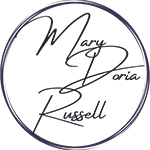Recently two writers got in touch about acknowledging sources for historical fiction. As one asked, Do I need permission from every website owner, author, newspaper, etc. whose information I incorporate into my story?
I’m not a lawyer and if you’re lucky enough to land a contract with a good publisher, you can count on their legal department to raise issues about permission. However, in my experience, the quick answer is, No.
Take the 1851 novel Moby Dick as an example. Yes, Herman Melville drew on his own experience on a whaling ship while writing the novel, but research shows he based the plot on Owen Chase’s 1821 memoir, The Wreck of the Whaleship Essex. According to Mary Bercaw Edwards, a Melville scholar at the University of Connecticut, he got much of his factual information about whales from Thomas Beale’s 1839 biological study, The Natural History of the Sperm Whale.
Which may account for all those Wikipedia-style data dumps about whales, now that I think of it…
Anyway, a fiction writer doesn’t need permission to make use of published factual information — as long as you’re not passing off someone else’s words as your own. And that proviso can be tricky.
In a famous case a few years ago, a big deal British writer (whose name mercifully escapes me) used the exact words about treating wounds that he found in the diary of a World War I nurse. The friend of one of her descendants challenged that as plagiarism. He was deemed within the law because the words were used in the context of a historical novel to construct a realistic picture of a character who was a nurse in the first world war. This was considered legally “transformative.” He was not trying to steal someone else’s work; rather he was making sure he was getting the medical facts exactly right for a realistic work of fiction. Also making it clear that he did not intend any literary theft, he acknowledged the source of his information in an Afterword, which was not legally necessary but was certainly courteous and sensible.
Around the world, fiction writers breathed easier. If he’d been deemed a plagiarist, then all of us were in big trouble: a ruling like that would have left us writing nothing but autobiographical stories. We have to learn what our characters would know. We do research to build the world of our stories. When there is technical knowledge to convey, most of us are careful not to lift even so much as a sentence verbatim, but we also have to avoid changing a source’s wording so much that we introduce stupid mistakes that annoy knowledgeable readers.
Other questions:
Should I list the websites or books in the back of my book? And if so, do I need to specify which info came from which source?
Novelists don’t have to provide a bibliography, let alone an annotated one. I personally like to include an Acknowledgments section at the end of my novels to tell readers what sources were particularly helpful or influential in developing the story or characters. I also provide my website and my email address so that readers can ask me questions about sources and additional reading. Authors have no obligation to do so.
Are there certain types of information (e.g. first-hand accounts) that require citing/permission and types that don’t (e.g. “common knowledge” such as times and locations)?
No, but it’s wise to keep track of sources if you need to backtrack and correct or change something, just for your own convenience. Again, if you get a good publisher, their legal department may raise issues about sources, so keep good notes but don’t make yourself crazy.
How historically correct do I need to be with well-known historical figures?
I myself stick pretty close to the facts, but that’s just how I roll. When you’re writing fiction, you can say George Washington was a wizard who lived in Afghanistan, if you like. It’s fiction. Readers expect fiction writers to make stuff up. Fantasy, alternate history, ghost stories, etc. all require a lot of factual leeway!
I am considering including small cameos of characters sharing first or last names with some of my teachers, friends, family, etc. as a kind of tribute–is this cool or creepy? Should I ask them first?
I’ve used friends’ names in novels and did ask permission first. Again: it’s a simple courtesy — and nobody has ever said no.
